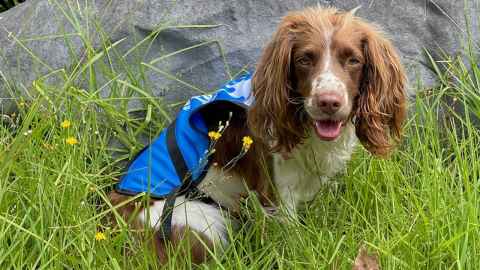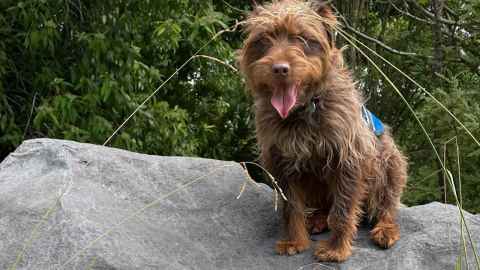Kauri-dieback sniffer dogs Pip, Mawhai put to test
31 July 2023
University researchers tested the accuracy of dogs sniffing out the pathogen that causes kauri dieback.

Kauri dieback sniffer dogs Pip, an English springer spaniel, and Mawhai, a terrier, were evaluated for the accuracy of their work by University of Auckland scientists.
The dogs were pretty good at detecting Phytophthora agathidicida, the pathogen that causes dieback, but a long way from infallible, in tests in a research facility in 2021 and 2022.
The study, in collaboration with Auckland City Council and Manaaki Whenua, with support from Plant and Food Research, was just published in the journal Conservation Science and Practice.
The pooches may be usefully deployed in identifying asymptomatic infected kauri trees and infected soils, and checking high-risk goods such as earthmoving equipment or plants.
Free ranging, the dogs could efficiently scan large, inaccessible areas according to the researchers, who were led by Dr Zachary Carter, a PhD student at Waipapa Taumata Rau, University of Auckland, now with the University of Adelaide.
An “adequate first-pass detection tool” was the verdict in the paper “Evaluating Scent Detection Dogs as a Tool to Detect Pathogenic Phytophthora Species.”
“This study is one of the first to evaluate how effective dogs are at detecting specific phytophthora species and opens the door to improving how we train and use detector dogs for plant pathogen biosecurity,” says University of Auckland ecologist Professor Margaret Stanley.

Media contact
Paul Panckhurst | media adviser
M: 022 032 8475
E: paul.panckhurst@auckland.ac.nz